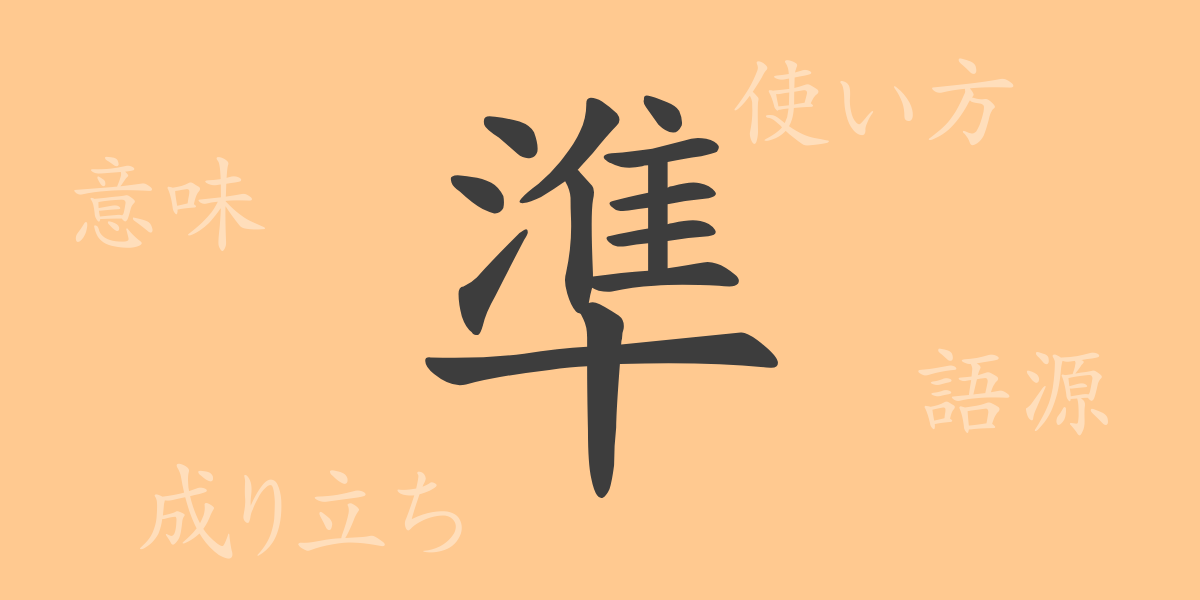The richness of the Japanese language is reflected in its complex writing system. Each kanji carries deep meanings and history, and by learning them, we can understand the culture and philosophy behind the words. “準(じゅん, jun)” is a commonly used kanji in Japan, deeply rooted in our daily lives. This article delves into the origin, meaning, usage, and various idiomatic expressions involving “準(じゅん, jun)”.
準の成り立ち(語源)
The kanji “準(じゅん, jun)” is composed of “氵(さんずい, sanzui)”, meaning water, and “隹(ふるとり, furutori)”, which indicates sound. Originally, it was used to describe the flat surface of water, from which it came to signify standards like the horizon, equality, and norms. These concepts of “standards” and “norms” were passed down from ancient China and have been widely accepted in Japan.
準の意味と用法
The kanji “準(じゅん, jun)” encompasses meanings such as “standard,” “criterion,” and “preparation.” These usages all point to something used for comparison or as a reference point. As a verb, “準じる(じゅんじる, junjiru)” means “to follow” or “to conform to,” commonly used in the context of laws or rules.
準の読み方・画数・部首
The kanji “準(じゅん, jun)” has multiple readings in Japanese.
- 読み方: 音読みでは「ジュン(jun)」、訓読みでは「じゅんじる(junjiru)」「なぞらえる(nazoraeru)」と読みます。
- 画数: 「準(じゅん, jun)」の画数は14画です。
- 部首: この漢字の部首は「氵(さんずい, sanzui)」で、水に関連する漢字に分類されます。
準を使った熟語・慣用句・ことわざとその意味
There are many idiomatic expressions and proverbs that include “準(じゅん, jun)”, each showcasing the richness of Japanese expression.
- 準備(じゅんび, junbi): Preparing necessary things to perform an action.
- 基準(きじゅん, kijun): A standard or criterion for judging things.
- 準じる(じゅんじる, junjiru): To follow or conform to a standard or example.
- 準急(じゅんきゅう, junkyuu): A type of railway service that stops at more stations than an express train.
- 準決勝(じゅんけっしょう, junkesshou): The match before the final in a sports competition.
準についてのまとめ
The kanji “準(じゅん, jun)” plays a crucial role in indicating standards and norms in our lives. Its diverse meanings and uses make it indispensable in the context of the Japanese language, appearing in various situations. Understanding this kanji not only deepens comprehension of the language but also offers insights into the culture and history behind the words. We hope this exploration helps you appreciate the profound world of “準(じゅん, jun)”.

























